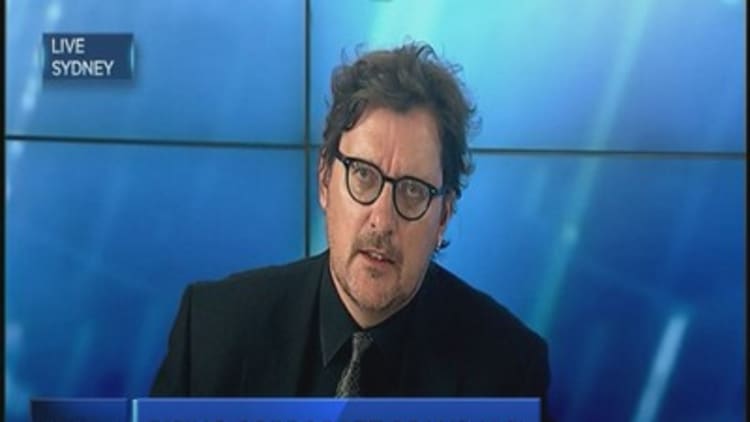Volkswagen has kicked off a crucial few days in its hometown of Wolfsburg with a rare bit of good news: The embattled carmaker's carbon emissions issue is not as bad as first feared.
As supervisory board members gather to review the findings of an internal probe, VW says that of the 800,000 vehicles initially estimated to have understated CO2 levels, only 36,000 have been impacted. The company added that "no unlawful change to the stated fuel consumption has been found to date."
Investors welcomed the news, pushing the stock up over 6 percent by the close on Wednesday -- all this a day before chief executive Matthias Mueller and chairman of the board Hans Dieter Potsch present the wider findings of a probe into the diesel emissions scandal. The pair will face press and top investors from 11 CET in what Evercore ISI analyst Arndt Ellinghorst predicts will be a "watershed moment" for the beleaguered carmaker.
What to watch out for
On the official agenda Thursday: An update on the "clarification process concerning the diesel issue and the realignment of the group."
The latter point speaks for itself. The Supervisory board announced alongside Mueller's appointment that it would restructure the group into new brand units -- an organization that was originally designed under former CEO Martin Winterkorn. But what that actually means in practice, whether more management changes will be announced and what steps VW will take to become a more agile and efficient corporate behemoth will be among top concerns in the crowd.
There is also the question of who will lead the newly combined North American market after former Skoda Chairman Winfred Vahland resigned just weeks after his appointment.
The diesel issue leaves more room for interpretation considering VW is now confronting a three-pronged crisis aimed at clarifying solutions for the following:
- The original 11.1 million vehicles with E189 engines
- An understatement of CO2 emissions in certain diesel and gasoline powered cars
- The near-90,000 3-litre V6 engines in some Audi, Porsche and VW vehicles with emissions controls that the US Environmental Protection Agency classifies as an additional "defeat device." VW has acknowledged these devices exist but insists they were not installed with a "forbidden purpose." This has begged the question among industry-watchers as to why they were there in the first place.
Given the CO2 question has to some extent been answered, the fix-and-recall plan for the E189 engines in the United States, where engineers face more stringent nitrous oxide (NOX) emission standards remains the most pressing matter. Some analysts speculate that the relatively low-cost fix getting the green light in Europe will not comply with US standards, raising the multibillion-dollar question over whether a technical solution is even possible.
If not, VW will be under pressure to lay out a comprehensive strategy for compensating drivers, dealers and fleet owners. If that involves vehicle buybacks, management will need to come clean on a worst-case cost scenario, to avoid further uncertainty.
To date, Volkswagen has set aside 8.7 billion euros ($9.52 billion) to cover the diesel and carbon issues: 2 billion euros of which was tied to CO2 discrepancies and will likely be revised lower. Analyst estimates of the total cost from recalls, engine fixes, fines and lawsuits have ranged from 20 billion euros - 78 billion euros. The carmaker is currently sitting on a cash pile of around 28 billion euros. But whatever the revised provisions unveiled tomorrow, if any, Ellinghorst expects a move toward greater transparency to be positive for the stock.
What not to expect

The meeting may be a watershed moment but don't hold your breath for closure, especially when it comes to the "who knew what, when, and why."
Given the scope and severity of the lawsuits surrounding the case, the board is unlikely to comment on the nature any wrongdoing. A report in the Wall Street Journal Wednesday alleged the German auto giant withheld information from US regulators as early as 2004.
The other elephant in the room is the outlook on cost cuts, especially when it comes to job reductions. VW has denied a report in German newspaper Bild am Sonntag this week that it is under pressure from its third-largest shareholder, the Qatar Investment Authority (QIA), to reduce the influence of the workers council.
According to Bild, the QIA, which holds a 17 percent stake in VW, voiced frustration even before the diesel crisis broke that the powerful labor unions were blocking essential reform.
However, given the bargaining power of the council, and the political sensitivities surrounding large scale job losses, this is a question likely to remain unanswered for quite some time.


